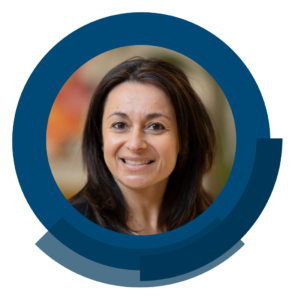We’re excited to announce three upcoming RSC Medicinal Chemistry Desktop Seminars, featuring winners of the 2019 and 2020 RSC Medicinal Chemistry Emerging Investigator Lectureship.
RSC Desktop Seminars are an initiative from the Royal Society of Chemistry to bring cutting-edge research directly to you! Now, more than ever, there is a crucial need for sharing research, and we’re pleased to present alongside Editorial Board members and Associate Editors, two RSC Medicinal Chemistry Emerging Investigator Lectureships in a digital format for the first time ever.
These seminars will cover a wide range of medicinal chemistry topics, from targeting infectious diseases to techniques for candidate identification and the chemistry of drug design. Be sure to register for each seminar individually at the links below!
30th September:

Dr. Chandradhish Ghosh

Professor Sylvie Garneau-Tsodikova
Dr. Chandradhish Ghosh, 2020 RSC Medicinal Chemistry Emerging Investigator Lectureship recipient, (Max Planck Institute of Colloids and Interfaces)
“Fantastic bugs and how to kill them”
Professor Sylvie Garneau-Tsodikova, RSC Medicinal Chemistry Associate Editor, (University of Kentucky)
“Infectious disease research/publishing in time of a pandemic”
Introductions will be given by RSC Medicinal Chemistry Executive Editor, Dr. Katie Lim, and the webinar will be hosted by Dr. Jennifer Lee.
See more information about the speakers and register here!
7th October:

Professor Amanda Hargrove

Professor Jean-Louis Reymond
Professor Amanda Hargrove, 2019 MedChemComm Emerging Investigator Lectureship recipient and ChemComm Advisory Board member, (Duke University)
“Modulating the conformation and function of disease-relevant RNA with small molecules”
Professor Jean-Louis Reymond, RSC Medicinal Chemistry Editorial Board member, (University of Bern)
“GDB and the chemical space: enumeration, visualization, synthesis”
Introductions will be given by RSC Medicinal Chemistry Executive Editor, Dr. Katie Lim, and the webinar will be hosted by Dr. Jennifer Lee.
Registration is open now.
14th October:

Dr. Yoshinori Ikeura

Professor Sally-Ann Poulsen
Professor Sally-Ann Poulsen, RSC Medicinal Chemistry Associate Editor, (Griffith University)
“The elephant in the room – Fragment screening using mass spectrometry”
Dr. Yoshinori Ikeura, RSC Medicinal Chemistry Editorial Board member, (Axcelead Drug Discovery Partners)
“The chemist’s contribution to the modern era in drug discovery”
Introductions will be given by RSC Medicinal Chemistry Executive Editor, Dr. Katie Lim, and the webinar will be hosted by Dr. Hiromitsu Urakami.
Registration is now open, and you can sign up here!



















 The Lectureship was open to any candidate who received their PhD in 2010 or later and has made a significant contribution to medicinal chemistry in their early career. The RSC Medicinal Chemistry Editorial Board selected Dr. Ghosh, from Max Planck Institute of Colloids and Interfaces, Germany, from a short-list of nominees.
The Lectureship was open to any candidate who received their PhD in 2010 or later and has made a significant contribution to medicinal chemistry in their early career. The RSC Medicinal Chemistry Editorial Board selected Dr. Ghosh, from Max Planck Institute of Colloids and Interfaces, Germany, from a short-list of nominees.